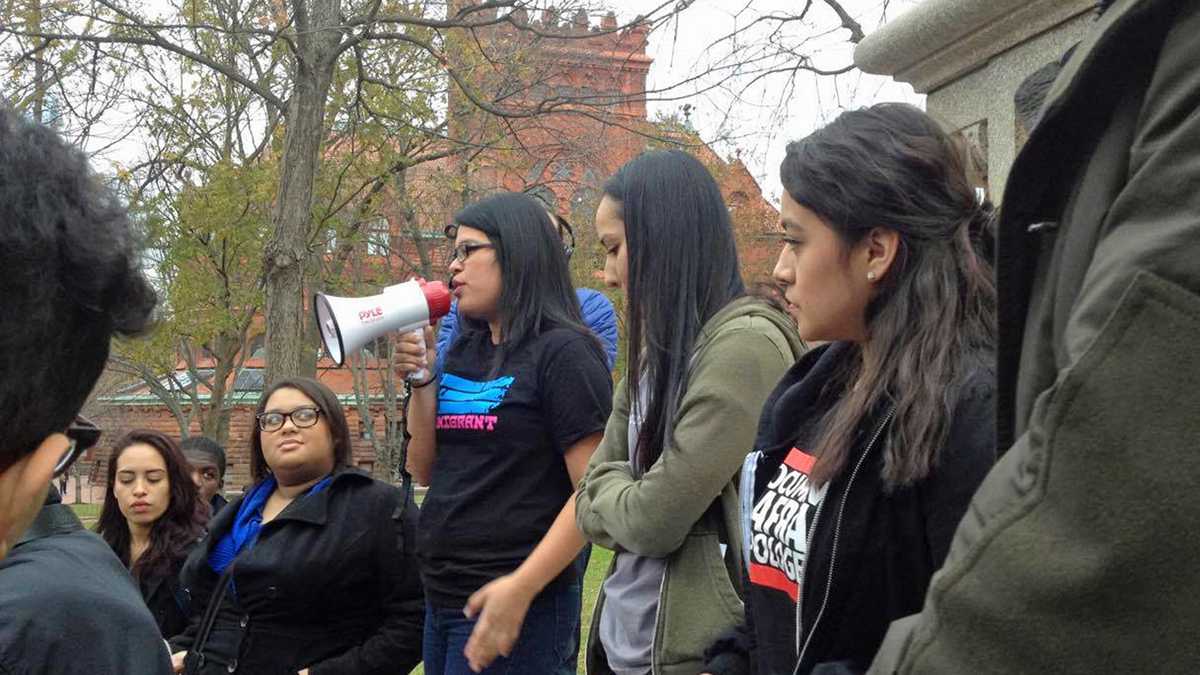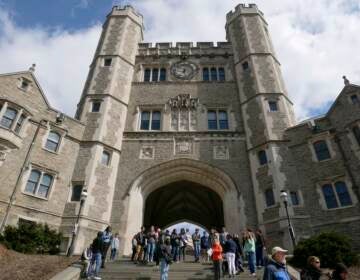‘Sanctuary campuses’ Swarthmore, Penn amplify protections of students at risk of deportation

Daisy Romero, center, holding the megaphone, is an undocumented immigrant from Mexico who will graduate from the University of Pennsylvania next year. (Photo courtesy of Daisy Romero)
As the Trump administration has refrained from stripping Obama-era protections for young people in the country illegally, Swarthmore College and the University of Pennsylvania are continuing their work to help undocumented students.
Three months ago, Swarthmore and Penn declared themselves “sanctuary campuses” and vowed not to share information about students’ immigration status or to cooperate with federal officials without warrants.
While the legal implications of these policies are still up for debate, the two institutions have been exploring the practical steps they can take to help students who are unauthorized immigrants have the same higher education experiences as their peers.
“To me the words ‘sanctuary campus’ mean more when they are backed by a set of specific policies,” said Matt Zucker, an associate professor of engineering at Swarthmore who co-chairs the college’s sanctuary campus working group, which includes faculty, staff and student representatives.
So far, the group has been sorting through a number of recommendations from student and faculty organizers at Swarthmore, as well as other colleges and universities that have adopted sanctuary campus policies, to figure out what the college can do and how much it could cost, Zucker said.
For example, the working group is exploring ways to match those students in need with immigration lawyers to advise them, and possibly their families as well.
“If the family is facing legal problems or needs to jump through administrative hoops, a lot of times the student is the one who is best able to deal with that,” Zucker said. “We are really interested in making sure we can give our students all the resources that they need to help their families out to the extent that we’re able to do that.”
Swarthmore plans to hold trainings for students, faculty and staff to educate them about relevant immigration laws.
The college has also expanded the use of a special discretionary fund to cover expenses the students might incur, such as emergency travel or immigration-related application fees. The cost to apply for the Deferred Action for Childhood Arrivals program, which allows unauthorized youth to temporarily study and work in the U.S., is $495.
At Penn, the university is considering ways to provide full-year housing for students at risk of deportation “if they live in border towns were immigration is present” and fear returning home for breaks or if their parents are deported, said senior Daisy Romero, a DACA recipient from Texas.
WHYY is your source for fact-based, in-depth journalism and information. As a nonprofit organization, we rely on financial support from readers like you. Please give today.




